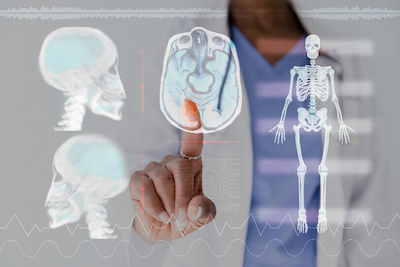Using Novel Therapies Along With Traditional Standards of Care
 The last two decades have multiplied available treatment options for epilepsy with a plethora of newer anti-seizure medications and the emergence of advanced technology that empowers clinicians to better pinpoint the source of seizures for more accurate treatment.
The last two decades have multiplied available treatment options for epilepsy with a plethora of newer anti-seizure medications and the emergence of advanced technology that empowers clinicians to better pinpoint the source of seizures for more accurate treatment.
“Over the past 20 years, more has happened in epilepsy care than any other time in history,” says Mohamad Koubeissi, MD, Director of The George Washington University Epilepsy Center and professor of neurology at The George Washington University School of Medicine & Health Sciences. “There has been a spike in the number of anti-seizure medications, some of which lead to higher chances of freedom from medically intractable seizures than previous medications, and in the operating room, less-invasive surgical techniques have fewer potential complications.”
Utilizing Current Therapies
The goals of all epilepsy care are no seizures and no side effects. This is possible via medication alone for two out of three patients, while one-third of epilepsy patients have medically intractable seizures. Of those who don’t find success with medical therapies, approximately 50% are eligible for surgical intervention. Following surgery, Dr. Koubeissi estimates that more than half of patients become seizure free.
Thanks to ongoing research and innovation, the remaining patients are not destined for a life with medically intractable seizures. New treatment options are providing new hope to those who were previously deemed untreatable.
At the GW Epilepsy Center, and in collaboration with Children’s National Medical Center, surgeons position intracranial electrodes with robotic assistance, allowing more accurate placement. Surgeons ablate focus areas with greater precision. Patients who undergo surgery often leave the hospital the following day with little or no pain.*
The GW Epilepsy Center also has nutrition experts who train patients with medically intractable epilepsy to use special diets that have been shown to reduce seizures. “We provide whatever care we can to help improve a patient’s quality of life,” says Dr. Koubeissi. “As a designated Level 4 Center by the National Association of Epilepsy Centers, there is no studied, successful technique available that we don’t use.”
Finding Novel Therapies
The Epilepsy Center doesn’t just rely on approved epilepsy therapies. The team actively participates in a wide variety of ongoing research and clinical trials that aim at pushing the envelope on epilepsy knowledge and care.
One distinguishing project featured in a National Geographic® documentary involved treating multi-focal epilepsy originating in both temporal lobes. Patients with this condition are ineligible for traditional surgical approaches. In an effort to find a new therapy, the team at GW Hospital used deep brain stimulation to send electrical pulses to the white matter that connects with the seizure-generating regions of the brain. Whereas all other research utilized high-frequency stimulation, they used low-frequency stimulation. The result was that three out of four patients found relief from seizures.
Dr. Koubeissi admits it is hard to draw conclusions from such a small sample size, but explains that the progress is still noteworthy. “The results thus far are promising enough to embark on a larger, multi-center trial,” says Dr. Koubeissi.
Other encouraging research involves identifying areas responsible for generating seizures. In animal studies, Dr. Koubeissi and his team identified an area within the primary olfactory cortex that plays a key role in seizure generation. By delivering electrical stimulation to the area, seizures were almost eliminated. Patients are being sought out to test similar therapies on humans.
“We hope to cure seizures completely, and this is possible,” Dr. Koubeissi says. While possible, Dr. Koubeissi hesitates to commit to a timeframe on epilepsy’s abolishment. However, he indicates that such a cure could come at any time. And if it happens in his lifetime, Dr. Koubeissi says, “I won’t be horribly surprised.”
Podcast – Epilepsy 101
Listen to Dr. Mohamad Koubeissi's podcast to learn more.
Refer a Patient
To refer a patient, please call 1-888-4GW-DOCS. If you have a question for a specialist at GW Hospital, please email physicianrelations@gwu-hospital.com.
*Individual results may vary. There are risks associated with any surgical procedure. Talk with your doctor about these risks to find out if robotic surgery is right for you.
